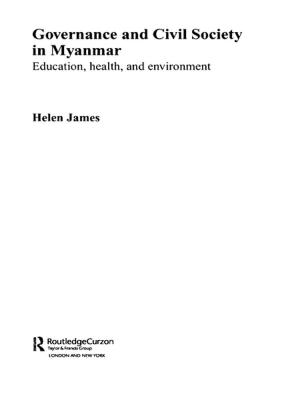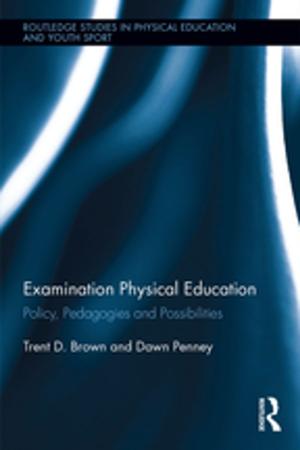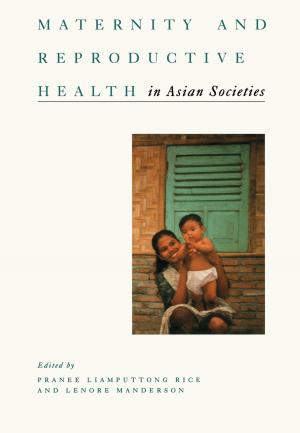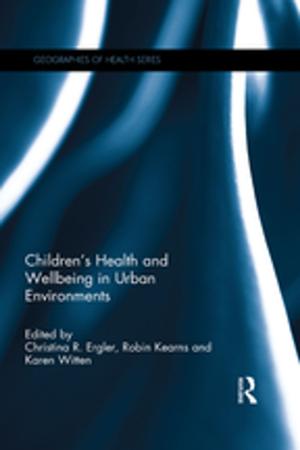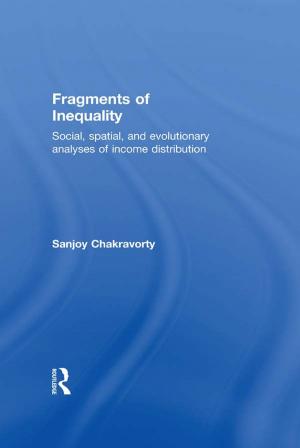Transitions From Care to Independence:
Supporting Young People Leaving State Care to Fulfil Their Potential
Nonfiction, Health & Well Being, Medical, Patient Care, Health Care Delivery, Social & Cultural Studies, Social Science, Social Work| Author: | Jennifer Driscoll | ISBN: | 9781317303275 |
| Publisher: | Taylor and Francis | Publication: | September 22, 2017 |
| Imprint: | Routledge | Language: | English |
| Author: | Jennifer Driscoll |
| ISBN: | 9781317303275 |
| Publisher: | Taylor and Francis |
| Publication: | September 22, 2017 |
| Imprint: | Routledge |
| Language: | English |
This important book focuses on the critical role of educational achievement for the wellbeing and success of vulnerable youth in adulthood. It is concerned with three interconnected issues: the support which is or should be afforded to youth ageing out of state care to enable them to fulfil their academic potential; the interdependence of social aspects of ‘care’ and educational attainment for children growing up in state care; and the conditions which are pre-requisite for transition to fully autonomous adulthood, together with the implications of these for the state’s responsibilities to care leavers.
These issues are addressed through a review of international literature based on the educational outcomes and life-chances of youth graduating from state care, analysis of the findings of a three-year qualitative study following the educational transitions of young people, and the use of theoretical frameworks to explore the complexities of children’s experiences of the state care system. In doing so the book balances predominantly needs-based discourses with a children’s right perspective, focusing on competence rather than vulnerability and promoting the development of the skills needed for autonomous adulthood.
Reconceptualising Transitions from Care to Independence should be considered essential reading for researchers, practitioners and policy makers in the fields of education, childhood studies and adoption and fostering services. Additionally, the issues addressed are of wider relevance to youth transitions to adulthood. Youth ageing out of care provide a particularly insightful case study into the broader cohort of young people entering the workforce in an era of a globalised economy and austerity.
This important book focuses on the critical role of educational achievement for the wellbeing and success of vulnerable youth in adulthood. It is concerned with three interconnected issues: the support which is or should be afforded to youth ageing out of state care to enable them to fulfil their academic potential; the interdependence of social aspects of ‘care’ and educational attainment for children growing up in state care; and the conditions which are pre-requisite for transition to fully autonomous adulthood, together with the implications of these for the state’s responsibilities to care leavers.
These issues are addressed through a review of international literature based on the educational outcomes and life-chances of youth graduating from state care, analysis of the findings of a three-year qualitative study following the educational transitions of young people, and the use of theoretical frameworks to explore the complexities of children’s experiences of the state care system. In doing so the book balances predominantly needs-based discourses with a children’s right perspective, focusing on competence rather than vulnerability and promoting the development of the skills needed for autonomous adulthood.
Reconceptualising Transitions from Care to Independence should be considered essential reading for researchers, practitioners and policy makers in the fields of education, childhood studies and adoption and fostering services. Additionally, the issues addressed are of wider relevance to youth transitions to adulthood. Youth ageing out of care provide a particularly insightful case study into the broader cohort of young people entering the workforce in an era of a globalised economy and austerity.





